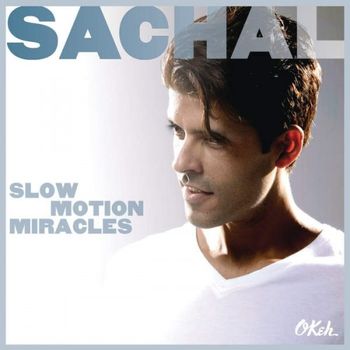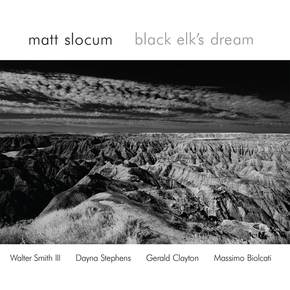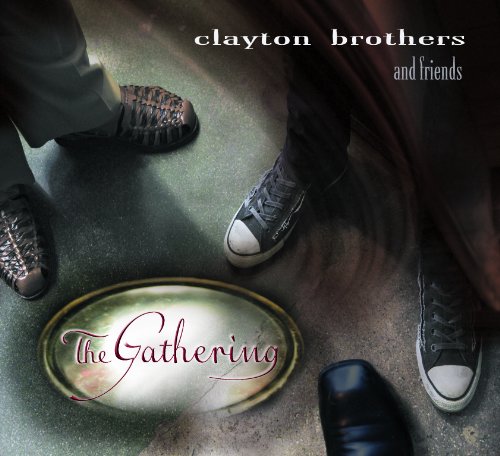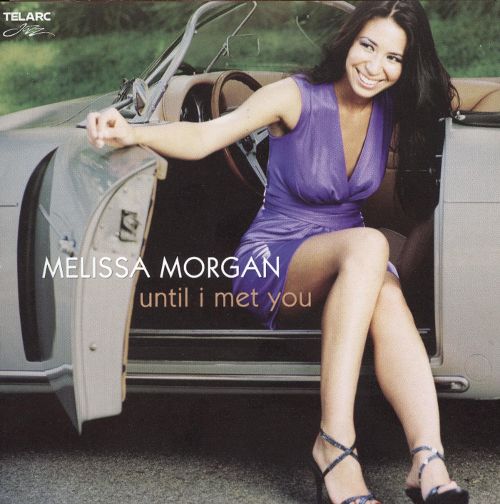


Biography
Biography
Biography
Gerald Clayton searches for honest expression in every note he plays. With harmonic curiosity and critical awareness, he develops musical narratives that unfold as a result of both deliberate searching and chance uncovering. The four-time GRAMMY-nominated pianist/composer formally began his musical journey at the prestigious Los Angeles County High School for the Arts, where he received the 2002 Presidential Scholar of the Arts Award. Continuing his scholarly pursuits, he earned a Bachelor of Arts in Piano Performance at USC’s Thornton School of Music under the instruction of piano icon Billy Childs, after a year of intensive study with NEA Jazz Master Kenny Barron at The Manhattan School of Music. Clayton won second place in the 2006 Thelonious Monk Institute of Jazz Piano Competition.
Expansion has become part of Clayton’s artistic identity. His music is a celebration of the inherent differences in musical perspectives that promote true artistic synergy. Inclusive sensibilities have allowed him to perform and record with such distinctive artists as Diana Krall, Roy Hargrove, Dianne Reeves, Ambrose Akinmusire, Dayna Stephens, Kendrick Scott, John Scofield Ben Williams, Terell Stafford & Dick Oatts, Michael Rodriguez, Terri Lyne Carrington, Avishai Cohen, Peter Bernstein and the Clayton Brothers Quintet. Clayton also has enjoyed an extended association since early 2013, touring and recording with saxophone legend Charles Lloyd.
2016 marks his second year as Musical Director of the Monterey Jazz Festival On Tour, a project that has featured his trio along with Ravi Coltrane, Nicholas Payton, Terence Blanchard and Raul Midón on guitar and vocals.Clayton’s discography as a leader reflects his evolution as an artist. His debut recording, Two Shade (ArtistShare), earned a 2010 GRAMMY nomination for Best Improvised Jazz Solo for his arrangement of Cole Porter’s “All of You.” “Battle Circle,” his composition featured on The Clayton Brothers’ recording The New Song and Dance (ArtistShare), received a GRAMMY nomination for Best Jazz Instrumental Composition in 2011. He received 2012 and 2013 GRAMMY nominations for Best Jazz Instrumental Album for Bond: The Paris Sessions (Concord) and Life Forum (Concord), his second and third album releases.
Capturing the truth in each moment’s conception of sound comes naturally to Clayton. The son of beloved bass player and composer John Clayton, he enjoyed a familial apprenticeship from an early age. Clayton honors the legacy of his father and all his musical ancestors through a commitment to artistic exploration, innovation, and reinvention.
In the 2016-17 year, Clayton turns his imaginative curiosity toward uncovering the essence of the Piedmont Blues experience and expression in early twentieth century Durham. A Duke University commission, Clayton’s evening-length composition will explore a mixed media performance that features some of the most resonating voices in contemporary music.

Albums
Albums
Album Releases
Six-time GRAMMY nominated artist Gerald Clayton returns with Bells On Sand, his ravishing second album for Blue Note Records. Recorded at Sam First in Los Angeles and Santa Barbara Sound Design, the album features ten tracks of fresh orchestration and original music with contributions from mentor Charles Lloyd on saxophone, father John Clayton on bass, longtime friend and peer Justin Brown on drums, and new collaborator MARO on vocals. Together, they explore the impact and abstraction of time.
“Each musician on the record represents a different aspect of the axis of time and its shifting sands,” says the acclaimed pianist-composer. “My father and Charles Lloyd, who has been a mentor figure to me, reflect new permutations of my past, and the lineage of elders who have shaped my development; Justin Brown, being my contemporary and musical brother, represents my present; and MARO represents the future—she is part of the next generation, and points to a brand new collaboration.”
Unadorned intimacy shapes the music. Clayton’s desire to share more of himself with listeners and fellow artists wields heady influence over his musical choices and his thoughtful curation of the entire album. But most striking is his ability to create quiet chambers for all four artists to be themselves. Bells On Sand opens in pensive resonance with “Water’s Edge.” The slow-peeling composition first spotlights Clayton’s relationship with John’s arco, tapered and doleful, before Brown transforms the duo into a trio. Each original tune, as well as Whiting and Chase’s “My Ideal,” honors Clayton’s journey through solitude in 2020. Both takes of “My Ideal”—two of three solo gestures—capture entirely different emotional arcs, bending in and out of time, equal in their honesty. For Clayton, their presence on the recording feels integral.
“By the water, I experienced subtle environmental shifts,” he says. “Songs I would sing, play or write were but an expression of a particular shape in the sand at that moment. Any meaning behind what I created came from viewing that creation over a temporal landscape. A song felt a certain way on a certain day, and the next day would feel and function completely differently.”
For the past decade, music from Catalan composer Federico Mompou has possessed Clayton, in listening and practice. Beauty and precision of those tenderly unfolding melodies would follow the bicoastal artist from his shared apartment in Harlem to his airy one bedroom in West LA. Despite his spending so much time with the material, Bells On Sand documents Clayton’s first recording of Mompou’s music, offering lush, understated interpretations of “Elegia” and “Damunt de tu Només les Flors.”
“Mompou’s music is laid out so masterfully, so economical in the spread of his voicings, that it feels a bit unnecessary to add anything original to it,” says Clayton. “My attempts at composing melodies over his harmonies, for instance, felt underwhelming. I’d inevitably return to what he’d written.” Though his treatment of Mompou’s works is true to the composer’s intention, Clayton sought textural orchestration outside their traditional context: electric piano, vibraphone, arco bass, drums and percussion. Coming from a maternal family of bell makers, Mompou becomes a grounding symbol for Bells On Sand, but the title also signals something less explicit yet entirely universal.
“I like thinking of the bell as the human voice,” says Clayton, “the song within us as well as the message—the feeling, the emotion—behind this song that we sing. Sand references the ever-changing landscape, the shifting nature of the ground we stand on. We ring our bells and sing our songs while the sands underneath us move. We’re always in flux, shaped by nature’s elements: sun and moon, water and wind.”
Similar textures appear on “That Roy” and “Rip,” duo pieces between Clayton and Brown. He composed the former in tribute to the recently departed Roy Hargrove—an unparalleled mentor and friend from Clayton’s early years in New York—aligning with themes of loss and gratitude; the latter serves, in part, as a vessel for Brown’s sensitive and near meditative development. “The melody is just this shape swimming around, stuck in one place,” says Clayton. “It never really breaks free. Justin understood the truth and tension of that concept—I didn’t really have to give him any direction. He just gets it.”
One pearl Clayton drops before young pianists is “Don’t sing what you play, play what you sing.” Vocalizing informs his method for approaching composed melodies and improvising new ones. The lyricism listeners have come to cherish in his music takes frank form on “Just a Dream.” With almost whispered tenderness, MARO delivers Clayton’s song—music and lyrics—about love and parenthood.
Bells On Sand culminates in sprawling duo with Lloyd on “Invocation for Peace.” The younger Blue Note artist has been a relative fixture on the elder’s tour schedule since 2013. Together, they’ve developed deep empathy and intuition for each other’s musical tendencies and spontaneous turns. Ending on a note of divinity and soul-searched resolve, Jeff Clayton’s “There is Music Where You’re Going My Friends” is a hymn to love and hope, recorded in memory of his beloved uncle.
“I hope these reflections encourage people to step back and recognize that our testaments—songs, stories, intentions—lay atop an ever-shifting landscape,” says Clayton. “To look at things from this zoomed-out perspective might allow for a union between past, present, and future. It might allow us to embrace the totality of our life experience. That we may consider the lessons from our past when living the present moment in a way that serves the future.”
Gerald Clayton • Bells On Sand • Release Date: April 1, 2022
















































